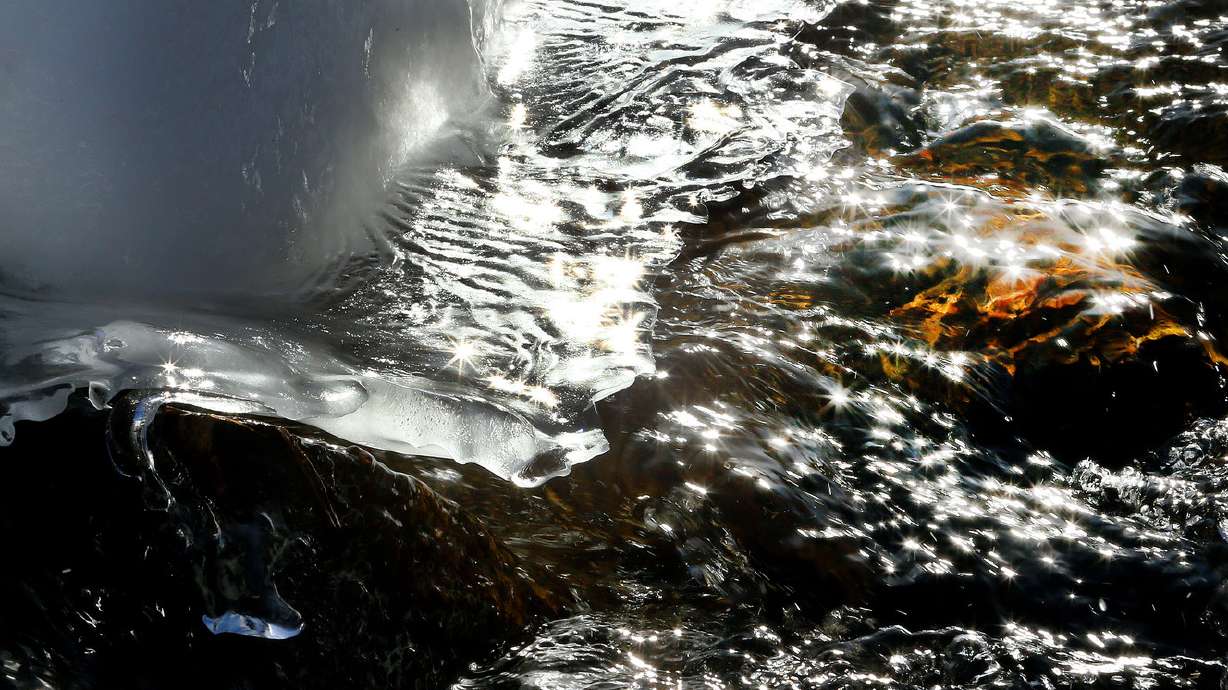Estimated read time: 3-4 minutes
This archived news story is available only for your personal, non-commercial use. Information in the story may be outdated or superseded by additional information. Reading or replaying the story in its archived form does not constitute a republication of the story.
SALT LAKE CITY — Two legislative proposals seek to upend current water law and policy by demanding greater accountability for public water systems and reigning in their regulatory authority over watersheds.
Bills by Reps. Kim Coleman, R-West Jordan, and Mike Noel, R-Kanab, take direct aim at Salt Lake City, in particular, and other cities of the first class that provide water outside their municipal boundaries and control activities in their watersheds.
Coleman's HB124 requires cities or special service districts to post maps of service areas, the cost of water being assessed to users, the description of any water rights being used, approved uses for the water rights and the point of diversion. The state engineer would be the gatekeeper of the information.
"This bill is a result of the Governor's Recommended State Water Strategy Report completed last July, which pointed out several vulnerabilities in how we are managing our collective water resources," Coleman said.
"How we distribute and account for water is no longer adequate for today's world. We lack a comprehensive picture of our overall inventory, who currently controls it and how they are managing and distributing these resources. Before we can determine where we are going, we need to establish where we are now."
Among other things, the governor's report recommended that the state improve the quality of the water data collected and make that information readily available to the public.
"Throughout the state, we have old cities, some with vast water holdings. We also have new cities and unincorporated areas with little or no water of their own," Coleman said.
"When an old city commits to provide water to an area outside of their municipal boundaries, we need to know several things about that water," she said, including its cost and source.
The state engineer and other critics have questioned Salt Lake City's supply of water to areas outside its municipal boundaries — such as Alta and area ski resorts — through surplus water contracts that can be terminated at will with 30 days' notice.
State Engineer Kent Jones, testifying at an earlier legislative hearing, said a "temporary" water supply should not be used to foster development of permanent infrastructure such as homes and resorts.
Related story:
A law more than a century old granting certain-size cities "extraterritorial" jurisdiction over watersheds is also up for possible elimination — again specifically looking at Salt Lake City's exercise of authority in the Wasatch Canyons.
Noel is sponsoring is HB135, which removes that authority in favor of cities, counties and special service districts deferring to environmental safeguards already on the books through health department ordinances and state water quality laws.
Noel has argued that the extraterritorial jurisdiction grant of authority by Utah is no longer necessary, redundant to existing rules and regulations, and sets up the potential for conflict as more cities reach that "first class" status and want to exercise regulatory authority in the same watershed.
Both bills are likely to set up a wave of contentious fights on Capitol Hill this session, where Salt Lake City will seek to retain its regulatory authority over the canyons — and the water supply that serves nearly 1 million residents — and its ability to leave surplus water contracts as is.
Noel's measure would nullify a number of stringent rules and restrictions that are part of a 1999 watershed ordinance adopted by Salt Lake City that gives it broad latitude to invoke protections on behalf of water quality, including prohibition of dogs and other domesticated animals.
Laura Briefer, director of the Salt Lake City Division of Public Utilities, said Noel's bill seeks to undercut an entity's ability to protect its water supply at the source.
"W need to be able to have some say and control over the areas, to protect those culinary water supplies from pollution," Briefer said.










